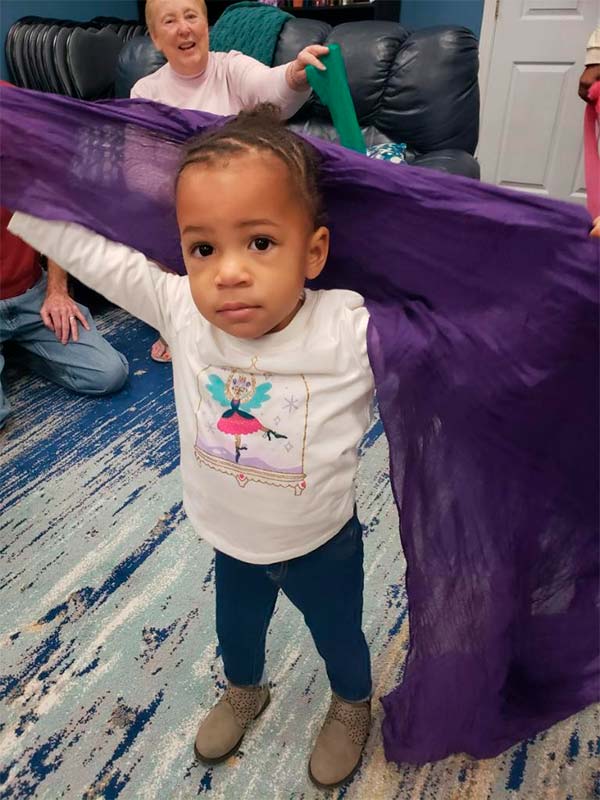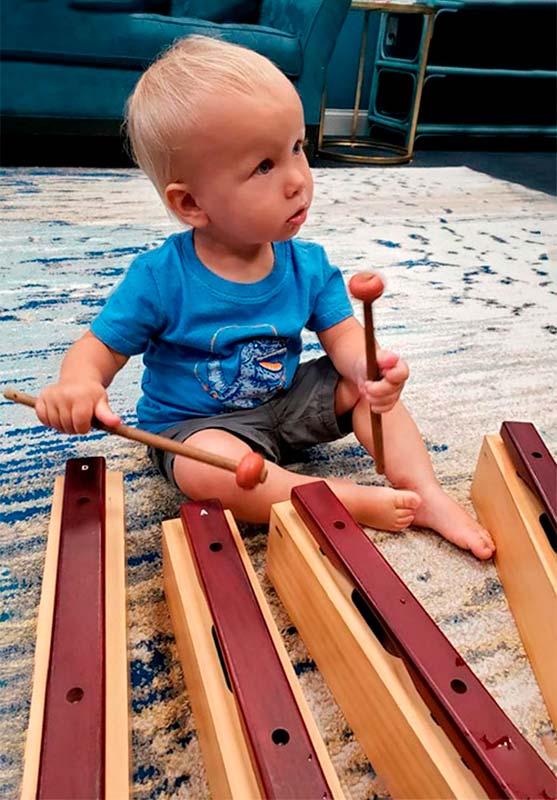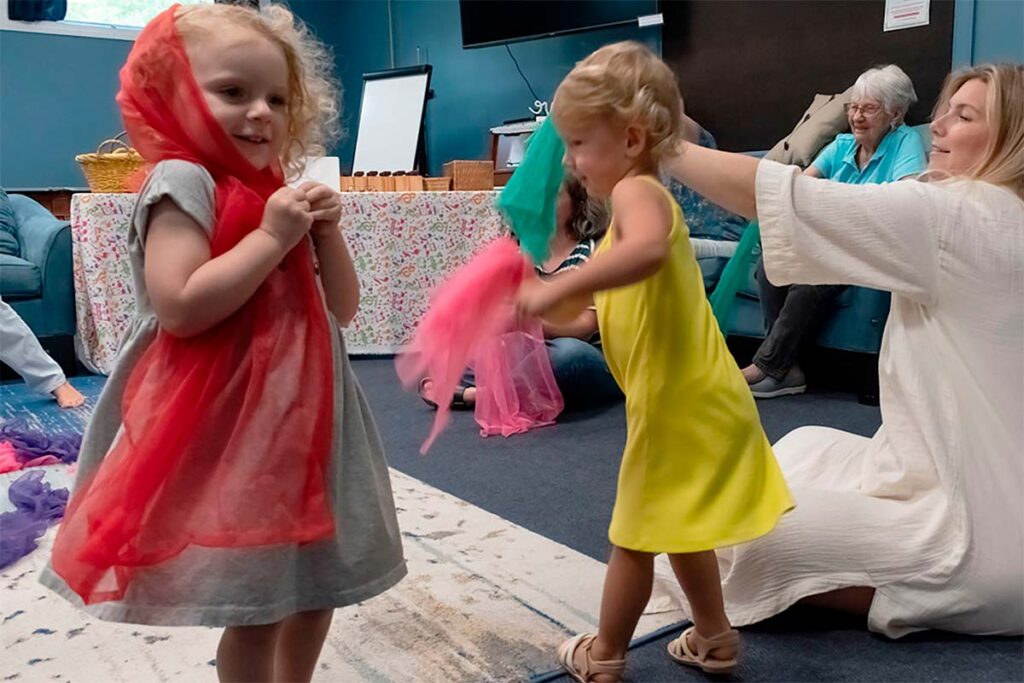



Music and Childhood Happiness As we have explored before, music facilitates listening, learning, language development, independence, and initiative in children. Music also helps reduce childhood anxiety and depression, while promoting healthy and restful sleep.

All of these factors affect moods in children, and as a result, their developing outlook on life. Furthermore, early childhood music classes promote social interaction and cooperation, which is a key factor in memories of a happy childhood. Singing and playing together in a group provides the positive feelings of shared community and teamwork. Music increases the release of endorphins and dopamine in the brain, which play a role in closeness and connection with others. Exposure to music from the earliest stages of childhood increases a positive world outlook and happiness. Group early childhood music classes especially benefit a child’s well-being, as it becomes a way to practice cooperation, communication, and interaction with peer s.Spring is a time when nature seems to come awake in many ways, including more music. For example, Canaries stop singing every autumn when the brain cells responsible for song generation die, growing back in the winter months so the birds can sing their songs in Spring. While birdsong may not be a sign of happiness in birds, it certainly brings joy to many who hear it as the sun begins shining longer and brighter.And as Musikgarten students, many of our little ones can identify those birds by their songs! Enjoy the rest of your weekend.
With thanks, Barbara
